Filter by

How to Build a Modern Tontine
This open access book introduces the modern tontine and its applications in retirement and decumulation. Personal financial management in the later stages of life presents unique challenges, and renowned retirement planning expert Dr. Milevsky proposes the modern tontine as a solution. With the goal of guiding professionals and retirees in more efficient decumulation, the book demonstrates how …
- Edition
- 1
- ISBN/ISSN
- 978-3-031-00928-0
- Collation
- -
- Series Title
- Future of Business and Finance
- Call Number
- XXI, 156

Effective Statistical Learning Methods for Actuaries II
This book summarizes the state of the art in tree-based methods for insurance: regression trees, random forests and boosting methods. It also exhibits the tools which make it possible to assess the predictive performance of tree-based models. Actuaries need these advanced analytical tools to turn the massive data sets now at their disposal into opportunities.
- Edition
- 1
- ISBN/ISSN
- 978-3-030-57556-4
- Collation
- -
- Series Title
- Springer Actuarial
- Call Number
- X, 228
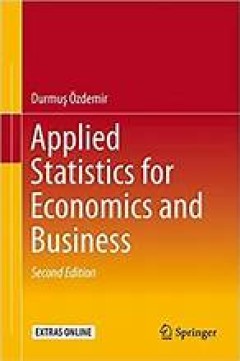
Applied Statistics for Economics and Business
This textbook introduces readers to practical statistical issues by presenting them within the context of real-life economics and business situations. It presents the subject in a non-threatening manner, with an emphasis on concise, easily understandable explanations. It has been designed to be accessible and student-friendly and, as an added learning feature, provides all the relevant data req…
- Edition
- 1
- ISBN/ISSN
- 978-3-319-26497-4
- Collation
- Mathematics
- Series Title
- -
- Call Number
- 510
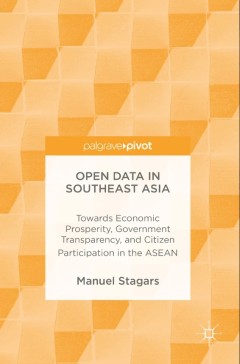
Open Data in Southeast Asia
This book explores the power of greater openness, accountability, and transparency in digital information and government data for the nations of Southeast Asia. The author demonstrates that, although the term “open data” seems to be self-explanatory, it involves an evolving ecosystem of complex domains. Through empirical case studies, this book explains how governments in the ASEAN may harv…
- Edition
- 1
- ISBN/ISSN
- 978-3-319-32169-1
- Collation
- XXV, 192
- Series Title
- -
- Call Number
- -
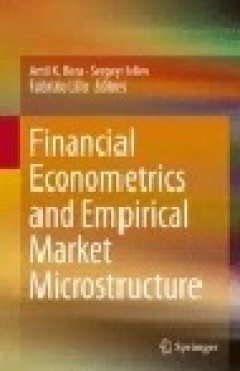
Financial Econometrics and Empirical Market Microstructure
In the era of Big Data our society is given the unique opportunity to understand the inner dynamics and behavior of complex socio-economic systems. Advances in the availability of very large databases, in capabilities for massive data mining, as well as progress in complex systems theory, multi-agent simulation and computational social science open the possibility of modeling phenomena never be…
- Edition
- -
- ISBN/ISSN
- 978-3-319-09946-0
- Collation
- VIII, 284
- Series Title
- -
- Call Number
- -
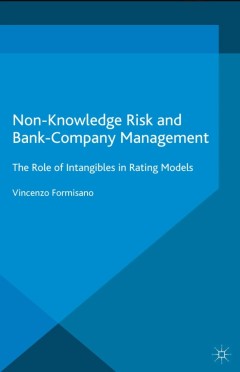
Non-Knowledge Risk and Bank-Company Management:The Role of Intangibles in Rat…
In the current economic scenario, the intangible assets contribute significantly to the construction of the competitive positioning of a company. It follows that this intangible information must be appropriately considered in the internal rating system (IRSs). Currently key aspects of business risk and operational risk such as potential for growth, competitive capabilities, core competencies, r…
- Edition
- 1
- ISBN/ISSN
- 978-1-137-49712-3
- Collation
- XII, 241
- Series Title
- Palgrave Macmillan Studies in Banking and Financial Institutions
- Call Number
- -
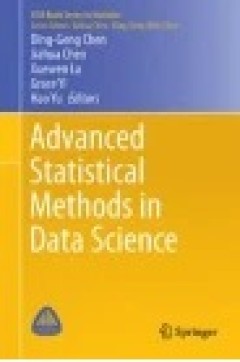
Advanced Statistical Methods in Data Science
This book gathers invited presentations from the 2nd Symposium of the ICSA- CANADA Chapter held at the University of Calgary from August 4-6, 2015. The aim of this Symposium was to promote advanced statistical methods in big-data sciences and to allow researchers to exchange ideas on statistics and data science and to embraces the challenges and opportunities of statistics and data science in t…
- Edition
- Ed. 1
- ISBN/ISSN
- 978-981-10-2594-5
- Collation
- XVI, 222
- Series Title
- ICSA Book Series in Statistics
- Call Number
- 332 ADV a
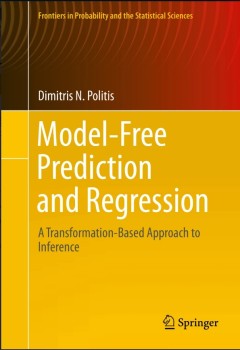
Model-Free Prediction and Regression
The Model-Free Prediction Principle expounded upon in this monograph is based on the simple notion of transforming a complex dataset to one that is easier to work with, e.g., i.i.d. or Gaussian. As such, it restores the emphasis on observable quantities, i.e., current and future data, as opposed to unobservable model parameters and estimates thereof, and yields optimal predictors in diverse set…
- Edition
- 1
- ISBN/ISSN
- 978-3-319-21346-0
- Collation
- XVII, 246
- Series Title
- Frontiers in Probability and the Statistical Sciences
- Call Number
- -
 Computer Science, Information & General Works
Computer Science, Information & General Works  Philosophy & Psychology
Philosophy & Psychology  Religion
Religion  Social Sciences
Social Sciences  Language
Language  Pure Science
Pure Science  Applied Sciences
Applied Sciences  Art & Recreation
Art & Recreation  Literature
Literature  History & Geography
History & Geography